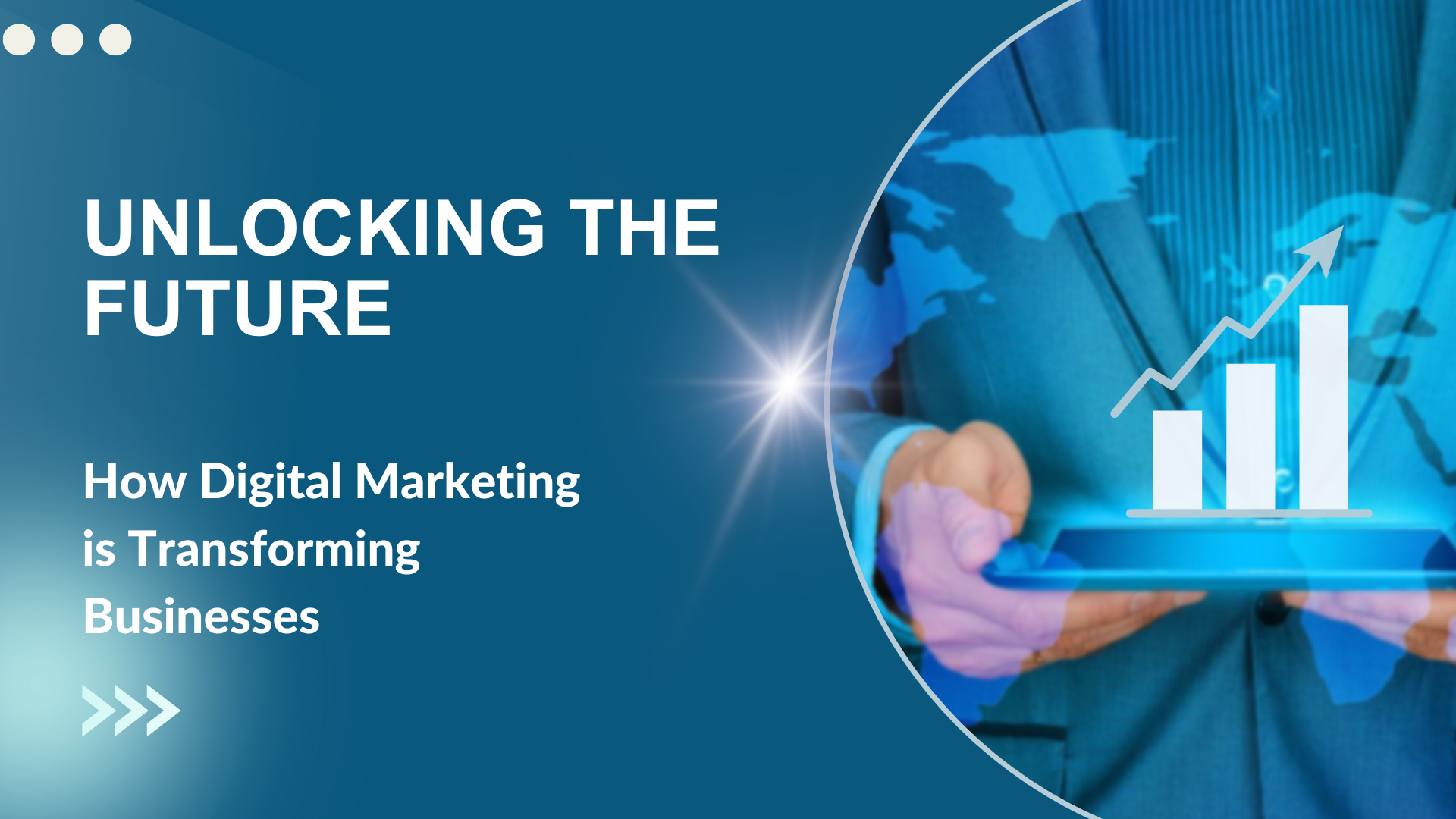Unlocking the Future: How Digital Marketing is Transforming Businesses
Welcome to our digital marketing blog, where we explore the dynamic and ever-evolving world of online marketing. As a leading digital marketing company, we understand the power and potential of the digital landscape. In this post, we will delve into how digital marketing is transforming businesses, offering insights and strategies to help you stay ahead of the curve.
The Digital Revolution
The rise of the internet has fundamentally changed the way businesses operate. Traditional marketing methods, while still relevant, are no longer sufficient to capture the attention of today’s tech-savvy consumers. Digital marketing has emerged as a powerful tool that allows businesses to reach a global audience, engage with customers in real-time, and measure the effectiveness of their marketing efforts with unprecedented precision.
Why Digital Marketing Matters
- Enhanced Reach and Engagement
Digital marketing breaks down geographical barriers, enabling businesses to reach a global audience. Social media platforms, search engines, and email marketing allow brands to connect with potential customers, fostering engagement and building relationships. - Cost-Effectiveness
Compared to traditional marketing channels, digital marketing is often more cost-effective. Pay-per-click (PPC) advertising, social media marketing, and content marketing can deliver significant returns on investment, especially for small and medium-sized enterprises (SMEs). - Data-Driven Decisions
One of the most significant advantages of digital marketing is the ability to track and analyze data. Tools like Google Analytics, social media insights, and email marketing software provide valuable data that helps businesses understand customer behavior, optimize campaigns, and make informed decisions. - Personalization and Targeting
Digital marketing allows for highly personalized and targeted marketing efforts. With advanced targeting options, businesses can reach specific demographics, interests, and behaviors, ensuring that their message resonates with the right audience.
Key Components of a Successful Digital Marketing Strategy
- Search Engine Optimization (SEO)
SEO is the foundation of any successful digital marketing strategy. By optimizing your website for search engines, you can increase visibility, drive organic traffic, and improve your site’s ranking on search engine results pages (SERPs). - Content Marketing
High-quality, relevant content is essential for attracting and retaining customers. Blog posts, videos, infographics, and ebooks provide value to your audience, establish your brand as an authority, and drive engagement. - Social Media Marketing
Social media platforms like Facebook, Instagram, LinkedIn, and Twitter offer unique opportunities for businesses to connect with their audience, promote their products or services, and build brand loyalty. - Email Marketing
Email marketing remains one of the most effective channels for nurturing leads and driving conversions. Personalized email campaigns can keep your audience informed, engaged, and connected with your brand. - Pay-Per-Click (PPC) Advertising
PPC advertising, such as Google Ads and social media ads, allows businesses to reach their target audience quickly and efficiently. With precise targeting and budget control, PPC campaigns can deliver immediate results.
Trends Shaping the Future of Digital Marketing
- Artificial Intelligence (AI) and Machine Learning
AI and machine learning are revolutionizing digital marketing by enabling more personalized and predictive marketing strategies. AI-powered tools can analyze vast amounts of data to predict customer behavior, optimize ad targeting, and improve customer experiences. - Voice Search Optimization
With the increasing popularity of smart speakers and voice assistants, optimizing for voice search is becoming essential. Voice search optimization involves using natural language, answering questions directly, and ensuring your content is easily accessible. - Video Marketing
Video content continues to dominate digital marketing. From live streaming to short-form videos on platforms like TikTok and Instagram Reels, video marketing is an engaging way to connect with your audience and tell your brand story. - Influencer Marketing
Collaborating with influencers can amplify your brand’s reach and credibility. Influencers have dedicated followings and can help you connect with potential customers in a more authentic and relatable way.

